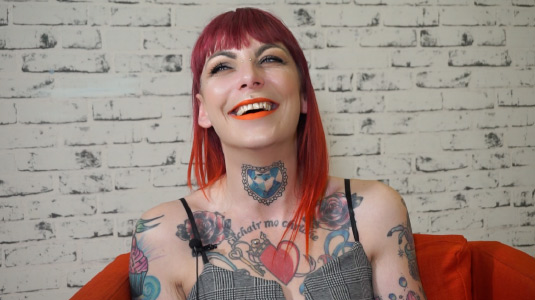SFC news published since 2018. See SFC archived content for earlier news articles.
Care experienced student Laura shares her own story as a ‘real person’ behind the statistics for care experienced students in further and higher education and the journey that’s led to studying a Master of Arts in Health and Social Policy.

My name is Laura and I was born curious.

I completed an HNC in Health & Social Care at college. I studied at Glasgow University for my undergraduate degree in Sociology. Now, I’m studying a Master of Arts in Health and Social Policy. These milestones and achievements are printed boldly on certificates and qualifications. However, the real story here lies between the lines, in what these letters and numbers don’t tell you. Why? Because I’m Care Experienced.
You might be familiar with the statistics around poor outcomes for Care Experienced people when it comes to education. It’s easy to forget that behind each statistic, there’s a real person, and that for people who grow up in care, it can be overwhelmingly difficult to prioritise learning. Assumptions are made that Care Experienced people are less capable, less driven and less ambitious when it comes to education. If you dig deeper you’ll see that actually we are brilliant, and our successes in adversity should be celebrated – during Care Experienced week and every week.
I first entered the ‘system’ as a baby. My birth mother struggled with her own mental health, including addiction, which meant that she struggled to look after me. I was placed in foster care twice, before the authorities stepped in and removed me from her care. After a third time in foster care, I was adopted shortly before my first birthday.
From an early age, I enjoyed learning. I was one of those kids who genuinely loved school. Prior to starting primary school, I was taught to read, write and count which meant I was schooled above the class until I had exhausted all teaching materials in primary five. I was thrilled to start high school, and in first year was offered a scholarship at the Trinity College in London during my grade 5 trumpet exam. However, my adoptive parents did not want me to go, due to my increasingly significant role in caring for my siblings and mother.
I left school at 15, due to difficulties I was experiencing at home. I returned to the care system, a residential house, at 16. My time in residential care was, in contrast to what you usually hear, very positive. I developed good relationships with the staff and was described as a “success story”. Success in this environment meant that I had a job and that I wasn’t in the criminal justice system or struggling with addiction or obvious mental health difficulties. Nobody ever asked about going back to school, the focus was on employability and getting ready to live independently – which I have done since I was 17.
Although I got good exam results, I completed an NVQ in administration, so I could get a job. When I was 17, I was in my first flat. No matter how much I worked, I always struggled to survive month to month. I felt invisible for years, like I didn’t matter, and tried to convince myself that I could spend my life working in jobs where I felt unfulfilled. It took me 13 years to go back into education.
My sister died in 2012 when she was just 17. Despite me alerting authorities and agencies, her death was a tragic example of the “system” failing. I struggled for months to accept that she was gone. The only way I could keep getting out of bed in the morning was in hope of being part of the desperately needed changes within the system which was designed to protect the most vulnerable members of our society.
I had failed twice previously to complete college but this time felt different – I had purpose. I struggled as a ‘mature’ student at 28, in a classroom full of younger students who had come straight from high school. I felt isolated, like I had nothing in common with my peers. I told myself I wasn’t there to make friends.
I spent most of my adult life embarrassed that I was Care Experienced. When I was working and living in residential care, other staff members would hide their valuables from me. People judged me by my address. When I went to the doctors, I was dismissed as a “troubled teen”. Being Care Experienced for me was always a negative, like a flaw in my character.
When I started my degree with the University of Glasgow in 2014, I received exemplary support from my Advisor of Studies, who untapped my potential to do so much more beyond what I could have thought. With his support, I believed that my background gave me an edge to the other students. Negatives became positives. For example, I realised that from my experiences, I could easily problem-solve. I could understand complex situations. I could handle pressure and responsibility. I was praised for my creativity and lateral thinking.
I graduated in 2017 with an upper 2:1 honours degree (in 3 instead of 4 years thanks to the articulation programme set up with the college where I studied my HNC). My honours research was chosen to be presented at the Universitas 21 international research conference in 2017, and I completed a 4-month internship with the Social Value Lab to gain experience working as a researcher.
I consider myself a child of the system. Although my individual circumstances are unique to me, the effect of my experiences are sadly shared by so many others who are in, or who have left care. We struggle to find meaningful employment. We struggle to reach higher and achieve within further and higher education. We struggle with our mental health. We struggle to believe in ourselves.
This is not because we are not clever, ambitious, passionate, driven, curious and brave. This is not because we don’t have the ability to achieve. This is not because there is something wrong with us. This is because our world is wrong. There have been so many positive changes in Scotland – the Care Experienced bursary, the independent care review, the introduction of Corporate Parenting to legislation – but we can’t stop there. We must stay ambitious in demanding structural change as there is still a long way to go.
We need to make the Care Experienced community believe they can be more. They’ll likely need to be told this more than once. When we have our own children, we promise to be there for their entire lives. We need Corporate Parents to be less Corporate, and more Parents.

